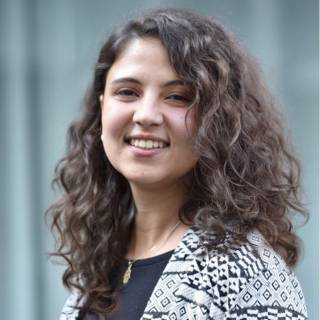
It was while pursuing my M.Sc. degree in Social Development Practice at the University College London that I was fortunate enough to encounter the fields of gender and public health. With its accommodation of different tools to study larger questions of inequality, poverty, social change and well-being, the degree provided me with just the conceptual frameworks and theories I needed. It also came in a time where Egypt was witnessing major change with the Arab Uprising in 2011 which triggered my interest further to the content I was studying. I had the opportunity to put some of these frameworks and tools to practice during the preparation for an impact assessment on the effectiveness and accountability of NGOs in Arusha, Tanzania as part of a required module on social research methodologies. Our group research has shed light on the fact that although youth and vulnerable children were the primary targets of NGO services in Arusha, many female youths complained of not receiving services relevant to their needs, especially with regards to HIV. This was largely due to top-down approaches exerted by implementing partners. Therefore, women of the ward were exposed to increased violence and discrimination compared to that experienced by other vulnerable groups.
Ever since I completed my master’s degree in Social Development Practice (SDP) at the DPU 11 years ago, I have been working for multiple research institutes as well as UN agencies (including UNICEF and UNFPA) where my work focused on gender, public health, and migration/refugee issues. My research work covered wide array of topics starting with the topic of female genital mutilation/cutting (FGM/C) in Egypt. I became the focal point and led the work of the DFID-funded “Evidence to End FGM/C” research program in Egypt that aims to address research gaps on this prevalent issue that affects 87% of Egyptian women (ages 15-49). Under the program administered by the Population Council, I was the principal investigator (PI) of a qualitative study assessing the responses of youth and parents towards the design and implementation of social marketing campaigns to end FGM/C in Egypt. I was also contributing to another study on the medicalization of the practice in Egypt whereby 72% of FGM/C procedures are carried out by medical professionals. The study revealed that FGM/C is largely justified to be a beautification process among mothers and physicians.
Venturing further into gender-based violence subjects, I became affiliated with UNFPA as a co-PI on a qualitative study on child marriage and FGM/C among Syrian refugees in Egypt in collaboration with Johns Hopkins University and Women’s Refugee Commission which was conducted within the year of 2019. Later, I assumed the role of a research manager at the Center for Migration and Refugee Studies (at the American University in Cairo), where I conducted a mixed method study looking at the perceived impact of the Syrian influx (after the 2011 conflict) on Egyptian labor migrants in Jordan, a country known to be a favorable destination for Egyptian blue-collar workers. This experience and that of UNFPA are what drove my interest in conducting further research on the intersectionality between migration and health, pursing another master’s degree in Humanitarian Health from Johns Hopkins University.
Aside from being a researcher, I wore the hat of a development practitioner and an implementer with the intention of putting theories to practice, something that I have constantly learnt from the SDP program. I worked at UNFPA Egypt as a humanitarian coordinator where the team offered a set of reproductive health material and life-skills to refugee and host communities along with promoting employability programmes among them to guarantee real capacity building and improved well-being amongst beneficiaries. I also worked for UNICEF Egypt as part of the Adolescent Development and Participation Programme working closely with the Egyptian Ministry of Youth and Sports to tackle the lack of career opportunities faced by the young people of Egypt using a gender lens, especially with the outbreak of COVID-19.
I am grateful for the learnings I have gained from the SDP program, its diverse body of students, and the DPU faculty in general, which resonate till this day. The knowledge I obtained from the SDP program paved the way for me to establish a strong portfolio within the development field in Egypt. It stirred up a strong interest in me on participatory research and how to best engage participants/beneficiaries in the research process. It also guided me through how civil society organizations, governments and corporations can effectively collaborate and strengthen ties to help pave the way for further advancement and fostering change.
 Close
Close

